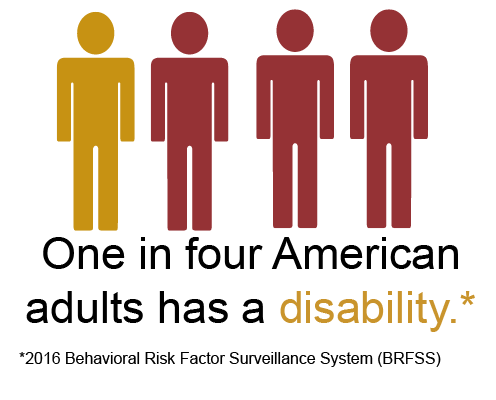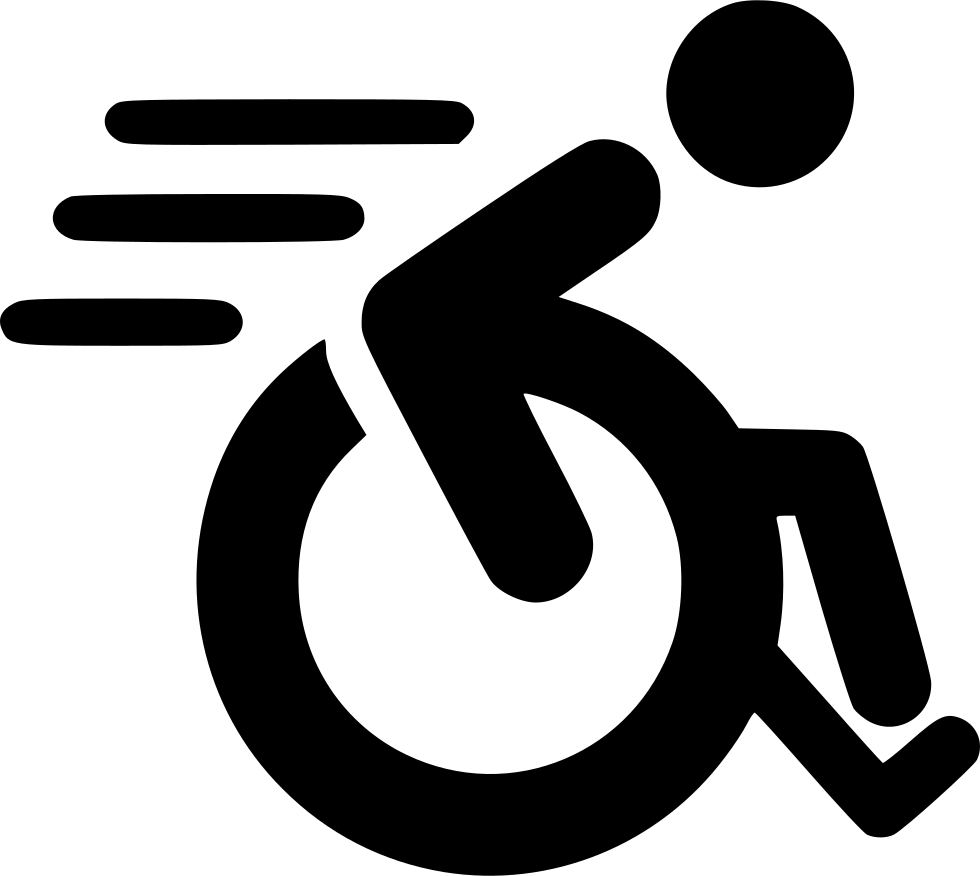peak up when you hear negative words, stereotypes, myths, or misinformation about people with disabilities. Advocate for barrier-free environments to provide equal access and opportunities. Write to editors and producers in support of positive portrayals of people with disabilities in the media. Your actions can help change attitudes that create barriers.
Myths About People with Disabilities
-
-
Common Myths
 Myth: Only a small number of
Myth: Only a small number of
people live with a disability
Truth: One in four American adults have a disability. (Centers for Disease Control and Prevention)Myth: People with disabilities are brave and courageous.
Fact: Adjusting to a disability requires adapting to a lifestyle, not bravery and courage.
-
-
- Myth: People with disabilities always need help.
Fact: Many people with disabilities are independent and capable of giving help. If you would like to help someone with a disability, ask if he or she needs it before you act.
- Myth: People with disabilities always need help.
-
- Myth: The lives of people with disabilities are totally different than the lives of people without disabilities.
Fact: People with disabilities go to school, get married, work, have families, do laundry, grocery shop, laugh, cry, pay taxes, get angry, have prejudices, vote, plan and dream like everyone else.
- Myth: The lives of people with disabilities are totally different than the lives of people without disabilities.
 Myth: Wheelchair use is confining; people who use wheelchairs are “wheelchair-bound.”
Myth: Wheelchair use is confining; people who use wheelchairs are “wheelchair-bound.”
Fact: A wheelchair, like a bicycle or an automobile, is a personal assistive device that enables someone to get around. It provides freedom for mobility. People do not have to be paralyzed to use a wheelchair.
Myth: People who have developmental disabilities do not have the same feelings as people without disabilities.
Fact: All people experience similar emotions, whether they express them the same way or not.
![]() Myth: Only people with mobility disabilities have an accessible parking placard
Myth: Only people with mobility disabilities have an accessible parking placard
Fact: There are many conditions beyond visible mobility impairments that necessitate a parking placard
-
-
Housing Myths
-
-
-
Learning Disabilities Myths
-
-
-
Mental Illness Myths
-
-
-
Internet Use Myths
-
- *
-
-
-
-
Special Education Myths
-
-
-
Sexuality Myths
-
Myth: Most people with disabilities cannot have sexual relationships.
Fact: Anyone can have a sexual relationship by adapting the sexual activity. People with disabilities can have children naturally or through adoption. People with disabilities, like other people, are sexual beings
